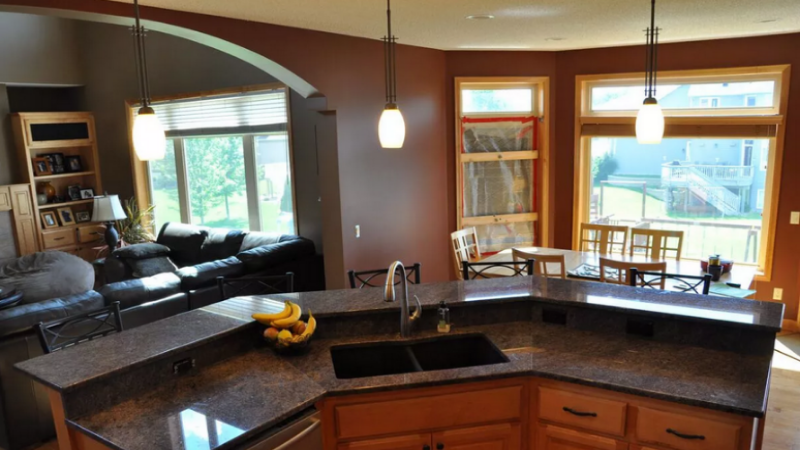Planning a new home construction or a kitchen renovation in an existing Minneapolis home involves a lot of decisions. Choosing just the right options in cabinets, kitchen countertops, and hardware adds to the style and decision of the project.
However, another important but often overlooked consideration in kitchen countertops is the safety factor. Safety includes how easy the countertops are to clean and how likely they are to harbor bacteria, germs, fungus, mold, and other types of potentially harmful microorganisms.
Non-Porous Countertop Materials
Porosity is the ability of the material to absorb liquids. Natural stone, ceramic tile, wood, or other similar materials have slight irregularities on the surface that create tiny cavities.
Sealing these types of kitchen countertops provides a protective layer that fills up these undetectable cavities and prevents bacteria and other harmful substances from penetrating the material. Some countertops, such as quartz or laminate, are engineered to eliminate these cavities and eliminate the need for sealing.
Durability
Natural stone kitchen countertops are some of the most durable options for Minneapolis homes. They are not prone to cracking, chipping, or being nicked with knives or other sharp objects. This is also a safety issue as this type of damage on other countertops provides an opportunity for germs to penetrate the surface.
Solid slab types of countertops also eliminate the need for grout. Grout in kitchens and bathrooms can be a place for mold and mildew to develop, particularly in and around the sink areas.







